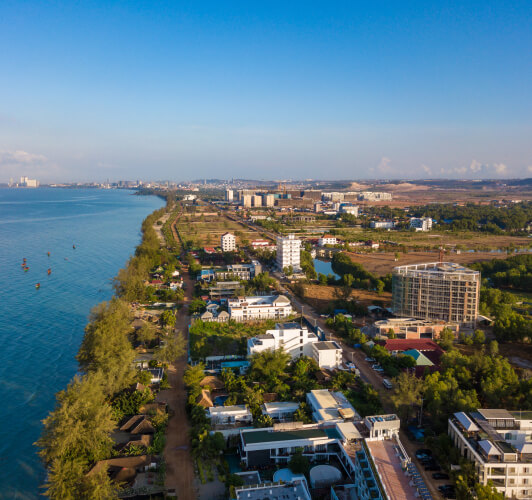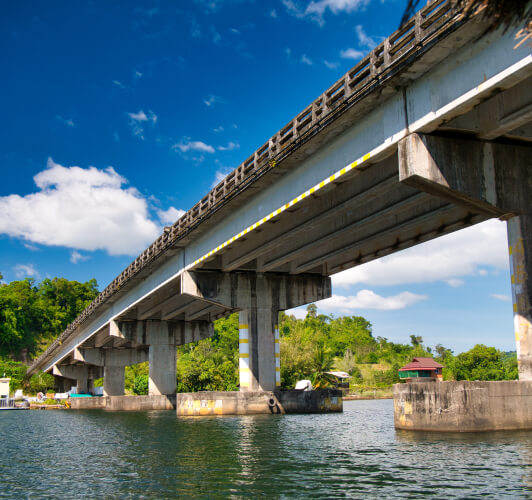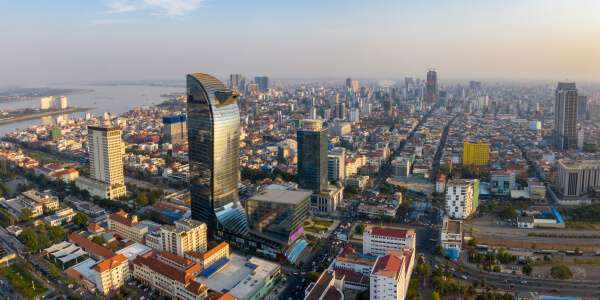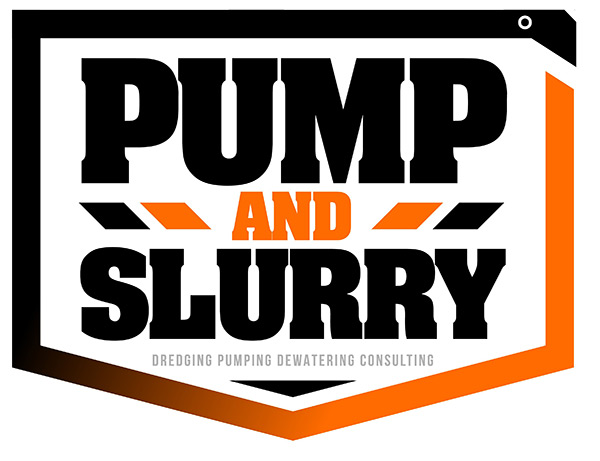Pumping and Dredging Project Consultation in Cambodia | Pump and Slurry
Pumping, dredging, and dewatering services are vital to Cambodia’s primary industries, including textiles, construction, rice milling, fishing, wood and wood products, rubber, cement, and gem mining. In the textile industry, pumping systems ensure a consistent water supply for dyeing and finishing processes, while dewatering helps manage wastewater and minimize environmental impact. The construction sector relies on dewatering to keep sites dry and safe, especially during the rainy season, and dredging is essential for maintaining waterways and ports used for transporting materials. In rice milling, pumping systems provide the necessary irrigation for rice paddies, and dewatering ensures efficient processing—fishing benefits from dredging to maintain navigable waterways and enhance fish habitats. The wood and wood products industry uses pumping for water management in timber processing. In rubber production, pumping is crucial for irrigation and maintaining plantation health. Cement manufacturing requires water for processing, whereas dewatering systems manage wastewater. Lastly, gem mining heavily relies on dewatering to keep mines dry and safe and dredging to access underwater deposits. These services collectively enhance productivity, safety, and environmental sustainability across Cambodia’s diverse industries.

Pumping and Dredging Project Consultation in Cambodia
Cambodia’s slurry pumping and dredging projects are crucial for supporting the nation’s key industries, such as construction, rice milling, and gem mining. In construction, these projects facilitate the removal of sediment and debris, maintaining clear waterways for material transport and site preparation. Rice milling benefits from slurry pumping and dredging by ensuring efficient irrigation and water management in paddy fields, leading to higher yields. For gem mining, slurry pumps transport mineral-rich slurry for processing, and dredging allows access to underwater deposits, enhancing extraction efficiency. Overall, pumping and dredging projects in Cambodia are essential for maintaining infrastructure, boosting agricultural productivity, and supporting mining operations.
The sales and rentals of slurry pumps and dredging equipment are vital to the success of pumping and dredging projects in Cambodia. Accessible and high-quality equipment enables industries to undertake essential water management and excavation tasks efficiently and cost-effectively. Businesses can choose the most suitable financial and operational strategies by offering sales and rental options, ensuring they have the necessary tools to maintain continuous productivity. This accessibility fosters local economic growth, encourages investment, and ensures that pumping and dredging projects in Cambodia can be executed with the highest standards, supporting the country’s industrial and environmental needs.
Our Services
Consulting Services
Pumping & Slurry Transport
Dredging Consulting
Dewatering
Equipment Sales & Rentals
Equipment Rental
Equipment for Sale
Customization Services
Industries in Cambodia Requiring Slurry Pumping, Dredging, and Dewatering
Textile Industry
To maintain high production standards and environmental sustainability, efficient pumping, dredging, and dewatering are essential for Cambodia’s textile industry. Pumping systems provide the necessary water for dyeing, washing, and finishing. Dewatering is crucial for treating the large volumes of wastewater generated, ensuring that harmful dyes and chemicals are removed before discharge, thereby protecting local water resources. Although dredging is less directly connected to textile production, maintaining transparent water sources through dredging ensures a steady and clean water supply for the industry. These water management practices enhance operational efficiency, reduce environmental impact, and ensure compliance with environmental regulations.
Construction Industry
In Cambodia’s construction industry, efficient pumping, dredging, and dewatering are critical for site preparation, foundation work, and safe working conditions. Dewatering systems remove groundwater from construction sites, especially during the rainy season, preventing flooding and allowing work to continue uninterrupted. Dredging is essential for maintaining navigable waterways for transporting construction materials and land reclamation projects. Pumping systems help manage water resources on-site, ensuring that dust suppression and concrete mixing processes are efficient. These services collectively improve project timelines, ensure worker safety, and support Cambodia’s infrastructure development.
Rice Milling Industry
The rice milling industry in Cambodia relies heavily on efficient pumping, dredging, and dewatering to optimize irrigation and processing operations. Pumping systems are essential for irrigating rice paddies, ensuring crops receive adequate water throughout the growing season. Dredging helps maintain irrigation channels by removing silt and sediment, ensuring unobstructed water flow. Dewatering services are used to manage and treat wastewater during the rice milling process, promoting efficient processing and environmental sustainability. These practices enhance rice yields, improve product quality, and support the overall efficiency of the rice milling industry.
Fishing Industry
Efficient pumping, dredging, and dewatering are crucial for Cambodia’s fishing industry to sustain fish populations and maintain navigable waterways. Dredging deepens and clears fishing grounds, ensuring access to abundant fish stocks and safe navigation for fishing vessels. Pumping systems help manage water levels in fish farms and aquaculture facilities, promoting healthy fish growth. Dewatering is essential for managing wastewater in processing plants, ensuring that effluents are treated and discharged safely, and protecting aquatic ecosystems. These services support the productivity and sustainability of the fishing industry, which is vital for local livelihoods and food security.
Wood and Wood Products Industry
Cambodia’s wood and wood products industry benefits significantly from efficient pumping, dredging, and dewatering services to maintain sustainable operations and environmental compliance. Pumping systems manage water in timber processing, ensuring efficient sawmill operations and dust suppression. Dewatering services handle the wastewater generated during wood treatment, ensuring that pollutants are removed before discharge. Dredging is essential for maintaining waterways used for transporting logs and finished products. These practices enhance operational efficiency, reduce environmental impact, and support the sustainable management of forest resources.
Rubber Industry
Efficient pumping, dredging, and dewatering are essential for Cambodia’s rubber industry to ensure optimal plantation health and processing efficiency. Pumping systems are crucial for irrigating rubber plantations and maintaining soil moisture for healthy tree growth. Dewatering is used to manage water resources during latex processing, ensuring the efficient operation of processing plants. Dredging helps maintain water sources and irrigation channels, preventing sediment buildup that can obstruct water flow. These water management practices enhance rubber yields, improve product quality, and support the sustainability of rubber plantations.
Cement Industry
The cement industry in Cambodia requires efficient pumping, dredging, and dewatering to manage water resources and ensure smooth production processes. Pumping systems provide water for mixing cement and controlling dust during production. Dewatering manages wastewater generated during the production process, ensuring it is treated and safely discharged. Dredging is essential for maintaining the waterways and reservoirs that supply water to cement plants, preventing sediment buildup that can impede water flow. These practices support efficient production, reduce environmental impact, and ensure compliance with environmental regulations.
Gem Mining Industry
In Cambodia’s gem mining industry, efficient pumping, dredging, and dewatering are vital for maximizing extraction efficiency and maintaining safe working conditions, and pumping systems transport slurry and sediment-laden water from mining sites to processing facilities where gems are extracted. Dewatering keeps mine shafts and pits dry, preventing flooding and ensuring safe working conditions for miners. Dredging is used to access underwater gem deposits and maintain navigable waterways for transporting mined materials. These services enhance the productivity and safety of gem mining operations, contributing to the industry’s economic viability.
Our Presence in the Country

Phnom Penh

Sihanoukville

Koh Kong
Conclusion
Cambodia’s diverse industries, from textiles and construction to rice milling, fishing, and gem mining, rely heavily on efficient water management facilitated by pumping and dredging projects. These projects are essential for maintaining operational efficiency, environmental sustainability, and economic growth across various sectors. By ensuring reliable water supply, managing wastewater, and keeping waterways navigable, pumping and dredging projects in Cambodia play a crucial role in supporting industrial development and infrastructure improvement. Moreover, these services contribute to the country’s socio-economic progress by enhancing productivity, ensuring environmental compliance, and fostering sustainable resource utilization. As Cambodia grows and diversifies its industries, continued investment in pumping and dredging projects remains essential to support the nation’s industrial aspirations and environmental stewardship.






